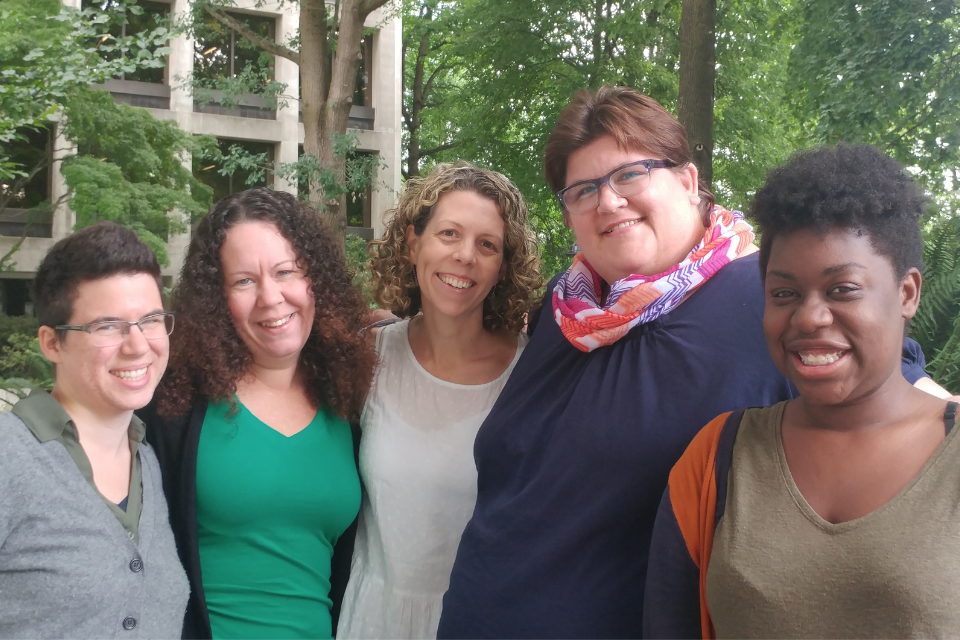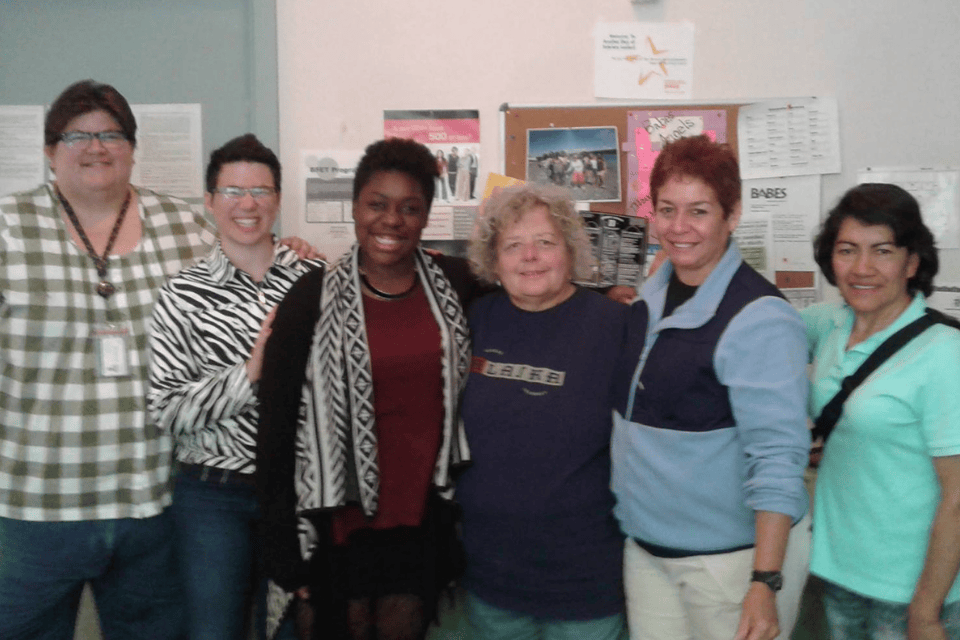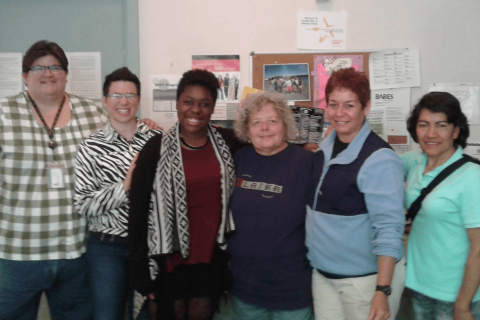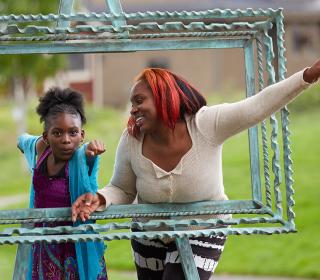December 1 is World AIDs Day, and it's an important reminder for all of us to stay educated and be more aware of our sexual health and overall well-being, because knowledge is not taboo.
Black women are disproportionately affected by HIV. Over 50% of all women newly diagnosed with HIV in the U.S. are African American. In Washington State, the rate of Black women living with an HIV diagnosis is over 23 times that of White women.

The stigma around HIV often makes the diagnosis even harder on patients. Judgment and rejection from family and friends can lead to depression and internalized shame, and many patients experience HIV discrimination in the medical field, which makes them reluctant to seek further treatment.
Living with HIV can be a very isolating experience, but it doesn’t have to be.
YWCA's BABES Network
As a woman who is also living with HIV, Kiasha Taylor, the Program Manager for BABES Network, understands the struggles these women face on a daily basis. “People think you live life and get back to normal, but you never do. When I got this disease, I was by myself, but I have since gotten married. [The BABES Network] builds confidence and lets you express yourself with people – like-minded people – who say ‘It’s ok, let us navigate this together.’"
Kiasha initially worked as an administrative assistant for the BABES Network and has been with the program for over 3 years now. Although other HIV-positive groups exist, she says the BABES Network is unique. “Most of our staff is HIV positive,” says Kiasha. “We can identify with people who are trying to navigate the system with this disease. [...] Having staff who are also HIV positive, and negative, makes the biggest difference. You got the kind of mix of ‘I’m not judging you, I understand you and I’m here’ and ‘I have [HIV], and I’m able to do it.’”

Along with this “sisterhood of solidarity,” before Covid, BABES regularly took its program participants on a 3-day self-care retreat. “We have a masseuse that comes in for massages, we have a healing group to recognize all those who have passed, all those who are sick, and we get to tackle issues in the community. It’s a regenerative approach, regenerative to dealing with life. We don’t talk about HIV in our everyday life because we’re so busy trying to live life.”
Misconceptions about HIV
Unfortunately, there are still many misconceptions about HIV. However, one of BABES’ goals is to help educate people about HIV and get rid of the stigma surrounding it. “There are a lot of misconceptions about HIV. You’re not gonna get infected through touch, you can still be in relationships.” Kiasha says it’s important that people take time to educate themselves about HIV, and how it affects those who have it. “Learn more about the disease, and talk about it. It’s not taboo. Be more aware of what is going on around you – your own body and your own sexual health.”
BABES Network participants frequently discuss the various struggles they face while living with HIV. “Sometimes we’re so sick we don’t get up in the morning; we can’t pull ourselves together,” Kiasha explains. “Sometimes it’s more of an emotional mental sickness because once you get sick, it’s really downhill from there once you start feeling the effects of being sick. You start emotionally giving up, and your body starts giving up. It’s hard.”
HIV can be a very isolating and lonely disease, but with the BABES Network and their supportive sisterhood, these women know they have a community they can rely on. Even with Covid limiting their ability to meet in-person, the group still keeps in touch with one another virtually. “It’s very difficult to do everything by Zoom, but we want to be around each other," says Kiasha. "We give each other strength to get up every day.”
Learn more about World AIDs Day and BABES Network, and stay up to date with our latest advocacy work with YWCA's monthly newsletter.
Ana Rodriguez-Knutsen is the Content Specialist for YWCA's Marketing & Editorial team. From fiction writing to advocacy, Ana works with an intersectional mindset to uplift and amplify the voices of underrepresented communities.
We share the stories of our program participants, programs, and staff, as well as news about the agency and what’s happening in our King and Snohomish community.

